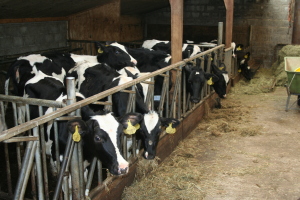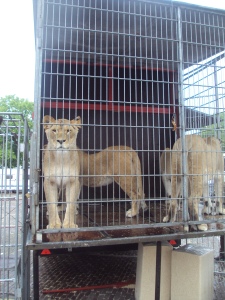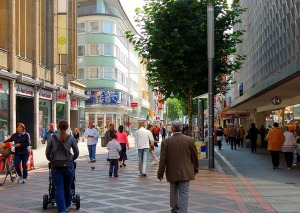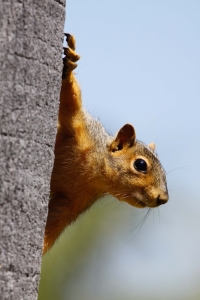Worldlog Tjedan 5 – 2015
Prošlog je tjedna Donji dom raspravljao o našem prijedlogu o bio-industriji. Posve je nerazumljivo da kabinet i dalje zastupa daljnji razvoj stočarstva, ne obazirujući se na očite štetne učinke na dobrobit životinja, sigurnost hrane, prirodu i okoliš. Tokom rasprave iznijela sam argumente kako bi smanjenje Nizozemskog stočarst va i regionalizacija bila jedina rješenja za ovaj problem. Pozvala sam kabinet da istraži isto.
Nizozemska ima najveći broj stoke po površini na svijetu. Životinje žive stisnute jedna uz drugu u štalama bez danjeg svjetla. Zbog visoke razine stresa i manjka otpornosti, često se razbole. Bolesne životinje i zoonoza (zarazna bolest koja se može prenijeti sa životinja na čovjeka) predstavljaju opasnost za javno zdravstvo. Osim toga, 4000 kilograma gnojiva po stanovniku Nizozemske koju stoka proizvede godišnje, vrlo je štetna za prirodu i okoliš.
Na sreću, u Nizozemskoj je vidljiv i otpor prema megalomanskom rastu stočarstva. Primjerice, ovog tjedna WWF (Svjetski fond za prirodu) zajedno s Nizozemskom bankom Rabobank i FrieslandCampinom (vrlo velikim proizvođačem mliječnih proizvoda)započinje kampanju kako bi seljake dovela u veću harmoniju s prirodom. Osim toga i sam građanin sve češće izražava želju da na poljima gleda slobodne krave i da u trgovinama nalazi sezonske proizvode. Možemo zaključiti da politika beznadno zaostaje…
Životinjama nije mjesto u cirkusima! Na sreću, od rujna ove godine nastupa na snagu zabrana držanja divljih sisavaca u cirkusima. No, što se nas tiče, ova zabrana nije dovoljno dobra. Moja kolegica, Esther Ouwehand, pozvala je kabinet da proširi zakon druge velike sisavce, gmazove i ptice, ali i da se zabavi morskim sisavcima u zatočeništvu.
Dobre vijesti! Ministar ekonomije je, nakon našeg prijedloga, odlučio započeti razgovor s vlasnicima trgovina o rasipanju energije kada vrata trgovina ostavljaju otvorena. Mnoge trgovine ostavljaju svoja vrata otvorena tokom dana, čak i zimi. Time mnoge trgovine „griju“ ulice. Ako se odluče za sistem kojim se vrata otvaraju i zatvaraju pri prolasku kupca, uštedjet će oko 40% energije. To je dobitak u novčaniku, ali i za okoliš.
Još vijesti iz Europe. Ujedinjeno Kraljevstvo želi usmrtiti desetak tisuća sivih vjeverica na teret Europskih poreznih obveznika. „Okrutno i besmisleno “, komentirala je naša europarlamentarka Anja Hazekamp. Zemljoposjednici koji žele doći do novaca iz Europskih fondova morali bi se ,prema novim pravilima, sami riješavati ove životinje. Anja je pismenim putem zatražila od Europske komisije da odbije zahtjev Velike Britanije. Cilj britankog plana je da zaštiti domaću crvenu vjevericu od sive pridošlice. Iz istraživanja proizlazi da ovakve istrijebilačke kampanje nemaju gotovo nikakvog učinka na populaciju vjeverica, kako sivih, tako i crvenih. Crvene vjeverice više pate zbog gubitka staništa uzrokovanih krčenjem šuma, zagađenjem i klimatskim promjenama. Istrijebljenje sive vjeverice ne vodi ničemu, osim velikoj patnji životinja.
Prošlog je tjedna objavljeno da je 2014. diljem svijeta, bila najtoplija godina do sada. Kako 2015. ne bi nadmašila rekord 2014., moramo poduzeti mnogo akcija kako bi se suočili s posljedicama.
Nadalje, vrlo smo zaposleni oko nadolazećih provincijskih izbora i izbora vodenih distrikta. U sljedećih nekoliko tjedana započinjemo s našom kampanjom u mnogim provincijama. Uskoro ću i ovdje iznijeti naše glavne točke rada i akcije.
Do idućeg tjedna!
Last week, the Lower House debated on factory farming on our request. It is unbelievable that the government chooses for further growth of the livestock industry despite the harmful effects on animal welfare, food safety, nature and the environment. During the debate I argued that diminishing the number of Dutch cattle and that focus on regionalisation are the only solutions for these problems. I called the government to look into this.
The Netherlands keeps the largest number of farm animals per area unit in the world. The animals are stuffed together in stables without any daylight. They become ill as a result of the high stress and their low resistance. Ill animals and zoonoses (infections that can be transferred from animals to humans) pose a risk to public health. Also, the 4,000 kilos of manure generated by cattle farming per year per Dutch person has a very harmful effect on nature and the environment.
Fortunately, we see that the resistance against megalomaniac livestock farming in the Netherlands is rising. This week, for example, the World Wildlife Fund launched a campaign together with the Dutch bank the Rabobank and FrieslandCampina (huge dairy producer) to have farmers work more in harmony with nature. And the public is also increasingly indicating that they want to see cows in fields and would prefer to have regional and seasonal products in supermarkets. We can thus conclude that politics is hopelessly behind the times…
Animals don’t belong in circuses! Fortunately, the ban on wild mammals in circuses will take effect in September of this year. But as far as we are concerned that ban doesn’t go far enough. My colleague Esther Ouwehand called the government to broaden the ban with other big mammals, reptiles and birds and to reflect on the use of sea mammals in the dolfinarium.
Good news! Further to our motion, the Minister of Economic Affairs said that he will enter into discussions with shopkeepers about how to address the huge energy waste as a result of shops keeping their doors open. Many shops keep their doors open during opening hours all the time, even in winter time. Shopkeepers are keeping the streets warm as a result. If they choose systems which close the doors if there are no customers coming in or going out, they will be able to save at least 40% on energy. A profit for both their pocket and the environment.
And here is some news from Europe. Great Britain wants to kill tens of thousands of grey squirrels, financed by European tax money. Our Euro MP Anja Hazelkamp called the plan ‘a cruel and pointless hunt’. Land owners who wish to be eligible for EU subsidy would be required to fight the squirrels under new rules. Anja has requested the European Commission in written questions to reject Great Britain’s application for the subsidy. The goal of the British plan is to protect the native species, the red squirrel, against the grey newcomer. But researches have shown each time that such killing campaigns have hardly any effect on squirrel populations, neither on the grey nor on the red. Red squirrels mainly suffer from the loss of adequate habitat due to deforestation, pollution and climate change. The fight against grey squirrels will get us nowhere and only lead to animal suffering.
Last week, it was confirmed that 2014 was globally the warmest year on record. We have to take action now to fight the consequences of that and to prevent 2015 from breaking the record of 2014.
Additionally, we are working on the coming Provincial and Water Board elections. Next week we will start our campaign in many provinces. I will soon tell you more about our spearheads and actions.
Until next week!



